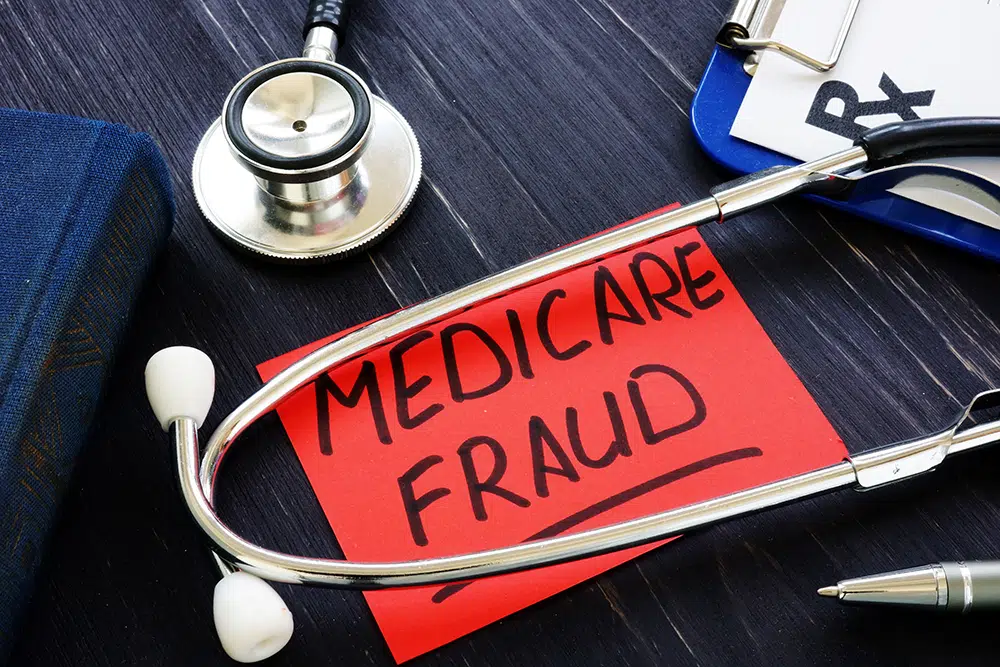If you are a Florida doctor who is being investigated or has been charged with Medicare fraud by the U.S. federal government, you need to have a clear idea of what is at stake. Just being accused of Medicare fraud could seriously taint your professional reputation. A conviction puts your medical license, your financial security, and possibly your freedom at risk.
Getting help from an experienced healthcare defense attorney is crucial to protect your rights and obtain the best possible outcome. At Jonathan Rose P.A., we have years of experience successfully handling both healthcare administrative cases and federal defense cases. We have helped physicians successfully defend their Florida medical licenses and fight fraud charges. We have the experience you need and are committed to putting it to work protecting you and your future.
What Is Medicare Fraud and Abuse?
Although there is a legal distinction between Medicare fraud and Medicare abuse, both could potentially subject you to serious penalties, if you are convicted. Medicare fraud covers a broad range of acts or omissions that typically fall into one of three categories:
- Knowingly submitting, or causing to be submitted, false claims or making misrepresentations of fact to obtain a federal health care payment to which you are not entitled.
- Knowingly soliciting, receiving, offering, or paying remuneration to induce or reward referrals for items or services paid for by Medicare.
- Making prohibited referrals for certain designated health services.
Medicare abuse refers to practices that may directly or indirectly result in unnecessary costs to the Medicare Program, including any practice that does not provide patients with medically necessary services or meet professionally recognized standards of care.
What Are Common Examples of Medicare Fraud and Abuse?
Examples of Medicare fraud include:
- Billing for services at a level of complexity higher than services provided (upcoding)
- Billing for services not furnished and/or supplies not provided
- Billing separately to increase the bill (unbundling)
- Falsifying records
- Ordering medically unnecessary items or services for patients
- Paying for referrals of patients
- Billing Medicare for “no show” appointments
- Billing for unnecessary medical services
- Charging excessively for services or supplies
- Routinely waiving co-insurance or deductibles
- Prescribing or providing unnecessary tests or procedures
What Federal Laws Govern Medicare Fraud?
If you are accused of Medicare fraud, you need to know what federal law(s) you allegedly violated. Federal laws that potentially govern Medicare fraud or abuse include:
- False Claims Act (FCA). The FCA imposes civil liability on any person who knowingly submits, or causes the submission of, a false or fraudulent claim to the Federal Government. Violation of the FCA does not require the intent to defraud.
- Anti-Kickback Statute (AKS). The AKS makes it a crime to knowingly and willfully offer, pay, solicit, or receive any remuneration directly or indirectly to induce or reward patient referrals or the generation of business involving any item or service reimbursable by a federal health care program.
- Physician Self-Referral Law (Stark Law). The Stark Law prohibits a physician from referring patients to receive “designated health services” payable by Medicare or Medicaid to an entity with which the physician or a member of the physician’s immediate family has a financial relationship unless an exception applies.
- Criminal Health Care Fraud Statute. Section 18 USC 1347 of the U.S. Criminal Code, makes it a crime to knowingly and willfully execute, or attempt to execute, a scheme or lie in connection with the delivery of, or payment for, health care benefits, items, or services to either:
- Defraud any health care benefit program
- Obtain (by means of false or fraudulent pretenses, representations, or promises) any of the money or property owned by, or under the control of, any health care benefit program
What Are the Potential Penalties for a Medicare Fraud Conviction?
Numerous factors, such as the federal law you are convicted of violating, contribute to the potential penalties you face if convicted of Medicare fraud. Examples include:
- False Claims Act. Penalties for violating the CFA are civil in nature and may include recovery of up to three times the amount of damages sustained by the Government because of the false claims, plus financial penalties for each false claim filed.
- Anti-Kickback Statute. Criminal penalties, civil, and administrative sanctions may be imposed for violating the AKS. These include imprisonment, exclusion from participation in the Federal health care program, and fines of up to three times the amount of the kickback.
- Stark Law. Penalties for violating the Stark Law include fines, civil monetary penalties for each service, repayment of claims, and potential exclusion from participation in the federal health care programs.
- Criminal Health Care Fraud Statute. A conviction for violating the Criminal Health Care Fraud Statute subjects you to imprisonment, exclusion from federal health care programs, and/or civil fines and penalties.
Contact an Experienced Florida Medicare Fraud Attorney
When your professional reputation, financial security, and your freedom are at stake, you need an experienced federal defense attorney on your side. The Medicare fraud and abuse laws are extremely complex and include numerous exclusions that may serve as the basis for a defense in your case.
If you are being investigated for or have been accused of Medicare fraud, contact Jonathan Rose P.A. as soon as possible to get started on your defense. Call us 407-894-4555 or submit the “Tell Us What Happened” form on our website.

